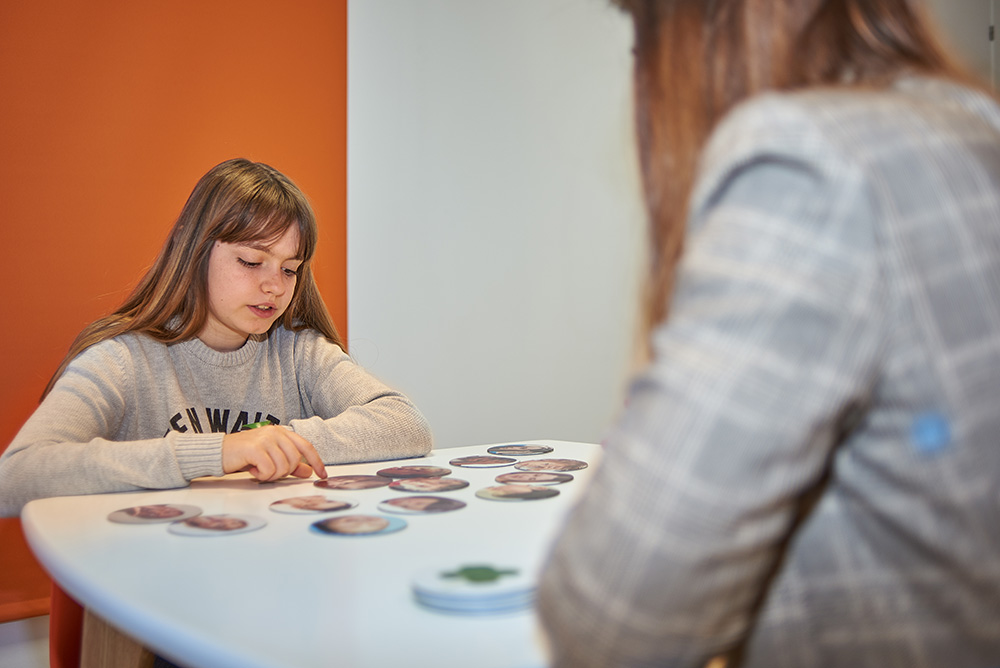ASD
Autism Spectrum Disorders (Autism and Asperger)
Autism Spectrum Disorder (ASD) is a neurobiological disorder that affects approximately 1 in 100 children born in Spain.

Although there are no current studies on its incidence, in recent years the cases diagnosed and treated have increased thanks to the better training on the disorder and the improvement of the detection instruments. This is a positive fact since being able to detect and intervene at an early age about the disorder improves the quality of life, both of the child and their environment.
It must be taken into account that it is a disorder with a broad spectrum and that the variability of symptoms and their intensity varies according to the type of involvement.
People with Autism Spectrum Disorder in general, have difficulties with social relationships, keeping the relationship with others excessively stuck, without knowing exactly how to relate; or on the contrary, presenting behaviors of social isolation.
Likewise, they also show some peculiarities in the related skills in both verbal and non-verbal communication, going from the absence of oral language to the presence of a little fluid and little functional communication. In addition, their abilities to imagine and understand the emotions and intentions of others are limited, which makes it difficult to function properly in a social environment.
In addition, they tend to present a limited repertoire of interests and behaviors, tend to have repetitive behaviors and have difficulty coping with changes in their environment, even if these are minimal.
Although we are talking about a disorder that accompanies them throughout their lives, there are different treatments that allow them to improve their quality of life and that of their environment, although there is no consensus on a standard treatment.
The sooner you start with proper treatment for the child and their environment, the greater the chances of having more positive effects on symptoms and on aptitudes. Treatments include behavioral and communication therapies, skills development and or pharmaceuticals to control some symptoms if necessary.
A fundamental aspect is the development of communicative and social skills and in Kinderapia we work individually and in groups, with a small group of children with similar characteristics to work these skills in a more complete way.
